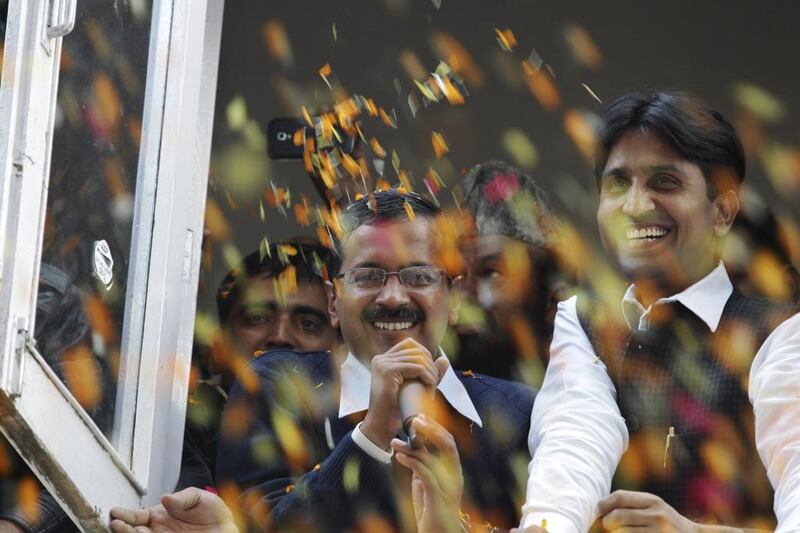The defeat of Congress in five states in the hands of the BJP is good news (Congress party falters as BJP wins at least four Indian state elections, December 7).
The situation in India was getting unbearable for the people of the country. I fail to understand how Congress could rule for nine years. The BJP is almost certain to win the national election in 2014. But records show that the party is not clean either.
But I think it will be more careful this time, because it took so many years for them to build their image, which they can’t afford to get tarnished quickly. Also, the BJP should know that it has got so much public support because of the people’s disgust with Congress and their desperation for a change. Now no party can take the voters for granted. The message in the state elections was clear.
Pranay Tiwari, India
The announcement of results in Indian state elections has stunned the Congress party. Particularly shocking for them was Delhi voters’ change of heart and their humiliating defeat at the hands of the newly-formed Aam Aadmi Party (AAP). The results proved that the century-old party has completely lost its credibility. On the contrary, AAP has gained public confidence because it campaigned against corruption.
People of India are now ready to accept a change. For Congress, it’s time to do some analysis and introspection. If it has to revive its image, it would need a complete overhaul of its structure.
While APP’s triumph has boosted its confidence to take part in the national election next year, parties like Congress and the BJP must do some homework before facing the people.
Ramachandran Nair, Oman
Even Mandela made mistakes
I have concerns about the news that is doing the rounds for the past few days that “all races and religions mourn Mandela” (South Africa is united in prayer for its lost leader, December 9).
I say it openly and honestly, even though my opinion might draw criticisms from many.
Each and every rational, tolerant and wise human being would show regard for an anti-apartheid hero like Nelson Mandela. But Mandela was also a human being who made many mistakes and had his regrets.
He served only a single term as president, during which he failed to tackle the spread of HIV even as frustratingly large numbers of South Africans became infected. He did almost nothing to stop the spread of the virus until his son got the disease in 2005.
South Africans faced several other challenges during his tenure, including political violence, economic upheaval and racial tension.
I guess the view of Mandela has softened over time.
Gaye Caglayan Budak, Abu Dhabi
Disappointed by Susan Boyle
I read in the newspaper that Susan Boyle cancelled her concert due to having Aspergers (Susan Boyle's Abu Dhabi leg of debut world tour cancelled, December 9).
Although I feel sorry for her, I wonder why she was appearing yesterday on a UK TV show called Loose Women to chat and to perform some songs? It makes a complete mockery of her cancelling the concert in the UAE when she can appear on a live TV show in the UK.
Judith Welling, Abu Dhabi
Find right cause of global warming
I refer to the news article The choice may be global warming or a new Ice Age, say scientists (December 1).
Regarding global warming, both camps are partially right. The IPCC alarmists are right because global warming is a fact. The sceptics are right too, because global warming is not anthropogenic.
Unfortunately, none of the camps objectively spells out the cause of this phenomenon. The proper treatment of any problem can be successful only when it is targeted to the cause, and not to its symptoms.
Global warming is caused mainly by increased solar radiation (not to be confused with solar activity) due to the shortening of the distance between Sun and Earth about 10,000 years ago.
There is no doubt that the contribution of the so-called greenhouse gases to this phenomenon is minimal – practically zero. That’s why the fight against global warming through the reduction of CO2 emissions, in this context, is practically meaningless.
There is also no doubt that the rising concentration of CO2 in the air is caused by its release from the warming of the oceans (Henry’s and Raoult’s laws) and not by human and industrial activities.
The two global phenomena should be differentiated from each other – global warming caused by solar radiation, and global pollution caused by humans.
Mankind can’t stop global warming. But we must try to minimise its effect.
Name withheld by request





